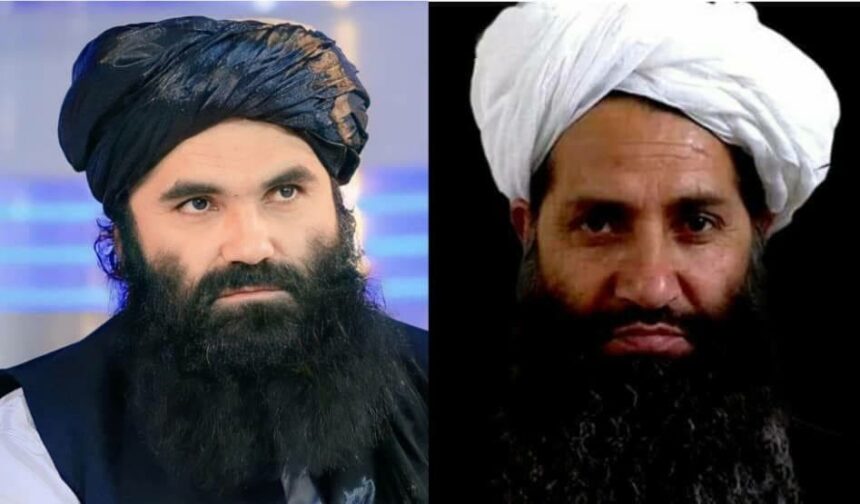RASC News Agency: More than a month has passed since Sirajuddin Haqqani, the Taliban’s Minister of Interior, last set foot in Afghanistan. Sources suggest that deepening internal divisions within the Taliban, particularly between Haqqani and Supreme Leader Hibatullah Akhundzada, have led to his continued absence from the country. Reports indicate that Haqqani’s prolonged disappearance, along with that of several other senior Taliban figures, is not coincidental but rather a strategic maneuver with political implications. Last month, Haqqani traveled to the United Arab Emirates, followed by a visit to Saudi Arabia, yet he has not returned. The Taliban leadership has remained tight-lipped, offering no official explanation regarding his whereabouts.
A source close to the matter has stated that Haqqani remains near Afghanistan, though the exact location has not been disclosed. Meanwhile, the United Nations Security Council confirmed that Haqqani was granted a temporary travel exemption from January 23 to February 3 to perform Umrah pilgrimage in Saudi Arabia. Internal discord within the Taliban continues to escalate, with factions of the Haqqani Network openly challenging Akhundzada’s authority. Haqqani has emerged as one of the most vocal critics of the Supreme Leader, and recently, Abbas Stanikzai, allegedly acting under Haqqani’s directive, accused Akhundzada of concentrating power and sidelining key figures within the movement.
For years, the Taliban have projected an image of cohesion and unity, positioning themselves as a disciplined force capable of governing Afghanistan without internal divisions. However, as power struggles intensify and rival factions within the group become more assertive, the Taliban’s internal fractures are becoming increasingly visible and destabilizing. Tensions between Haqqani and Akhundzada have simmered since the Taliban’s return to power in August 2021. Analysts suggest that the mysterious assassination of Khalil-ur-Rahman Haqqani, a senior Taliban figure, may have been linked to Sirajuddin Haqqani’s outspoken criticism of Akhundzada a critique made just days before Khalil-ur-Rahman’s death. Some reports indicate that Haqqani’s reluctance to return is a direct consequence of his dissatisfaction with Akhundzada’s leadership and the Taliban’s growing internal rifts.
As internal dissent grows, some Taliban figures have publicly broken ranks, voicing discontent with the leadership, while others predict that the collapse of the regime is now inevitable. The Taliban, once adamant about their unified front, now face an existential crisis as their internal power struggles escalate beyond control.






